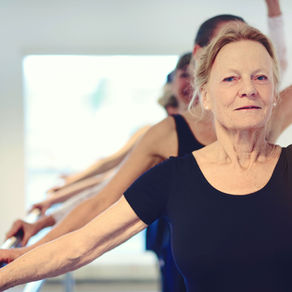Persistent Pain
A new frontier of pain science is here, transforming how we understand, experience, and manage pain. By integrating biological, psychological, and social factors, this approach offers new opportunities to improve recovery and enhance quality of life.

When someone is experiencing pain, they often undergo a "sense-making" process, seeking answers to four key questions:
-
What is happening?
-
What can I do about it?
-
What does this mean for my life now and in the future?
-
Do others understand and believe me?
When these questions go unanswered, it can leave people feeling uncertain and overwhelmed.
If this sounds familiar, let’s connect and discuss how modern pain science and personalised treatment can help you gain clarity and move forward with confidence.
Treatment Philosophy
Validation
Acknowledging and respecting each person’s pain experience is essential.
Validation means truly listening, understanding the challenges pain creates, and ensuring individuals feel seen, heard, and supported throughout their care.
Education
Knowledge is power, especially when it comes to pain.
By demystifying pain, education becomes a powerful tool for fostering resilience and promoting long-term improvement.
This understanding empowers individuals to take an active role in their recovery, make informed decisions about treatment options, and build confidence in managing their pain day-to-day.
Reframing
Persistent pain can change how we view our bodies, our capabilities, and even our future.
Reframing focuses on shifting these perspectives, helping individuals see new possibilities, rediscover strengths, and approach their pain with greater understanding and resilience.
Function
The focus isn’t just on reducing discomfort—it’s on improving what truly matters in daily life.
Function means addressing meaningful activities, like returning to work, enjoying family time, or pursuing hobbies. By prioritising practical outcomes, treatment becomes personal and empowering, helping individuals live well despite their pain.
Why Pain?
During my early career as an Exercise Physiologist, working with patients who reported chronic pain was both challenging and eye-opening. I often found myself asking, “I’m giving this client all of my very best exercises, so why is their pain not improving? What is going on?” Driven by curiosity—and perhaps a touch of stubbornness—I became deeply interested in understanding why some clients with similar injuries recovered well with a traditional approach, while others became stuck in a persistent cycle of pain.
This curiosity led me to explore the complexities of persistent pain, delving into the latest research in pain science and integrating a biopsychosocial approach into my practice. I came to understand that persistent pain is not just a physical issue; it’s shaped by a combination of biological, psychological, and social factors that influence how pain is experienced and managed.
The more I learnt about pain, the more I became fascinated with the brain. I am in total awe of the power our brain has over our physical experience—I could go on all day! Since then, I have been on a pathway of learning more about the brain and psychology, which has led me to study a Graduate Diploma of Psychology at Monash University, set to graduate in August. I felt there was more I could be doing as a practitioner to help my clients, and seeing them “turn the corner” towards greater function is a feeling that never gets old.
Qualifications & Professional Development:
-
Bachelor of Clinical Exercise Physiology (Hons) - QUT
-
Clinical Pilates Equipment Levels 1,2 & 3 - Pilates Institute of Queensland
-
Explain Pain Course - David Butler & Tim Beams (Noi Group)
-
Bodily Relearning - Benjamin Boyd (Noi Group)
-
Graduate Diploma of Psychology - Monash University (set to graduate Aug 2025)












